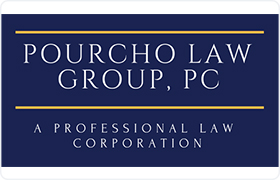La Puente Collection Lawyer, California
Sponsored Law Firm
-
 x
x

Click For More Info:
-
Pourcho Law Group, PC
2618 San Miguel Dr Suite 410 Newport Beach, CA 92660» view mapCollection Law Results Driven Legal Assistance
Ben Pourcho and the legal support team at the Pourcho Law Group, PC have a proven track record of providing the highest quality of legal representation to our clients.
800-936-1321
Andrei Armas
✓ VERIFIEDCredit & Debt, Banking & Finance, Collection, Identity Theft, Consumer Rights
Andrei Armas is a Partner of Armas & Joseph, APLC specializing in consumer protection, class action litigation, and civil trials. Mr. Armas is admitt... (more)
Dennis M. Wu
Commercial Leasing, Business Successions, Business Organization, Collection
Status: In Good Standing
Sergio A. Rodriguez
Business Organization, Credit & Debt, Collection, Bankruptcy
Status: In Good Standing
FREE CONSULTATION
CONTACTFREE CONSULTATION
CONTACTSteve Anthony Hoffman
Landlord-Tenant, Copyright, DUI-DWI, Collection
Status: In Good Standing Licensed: 36 Years
Alexander F Giovanniello
Employment Discrimination, Elder Law, Insurance, Collection
Status: In Good Standing Licensed: 38 Years
Alexander F Giovanniello
Employment Discrimination, Elder Law, Insurance, Collection
Status: In Good Standing Licensed: 38 Years
Alexander Fernando Giovanniello
Employment Discrimination, Elder Law, Insurance, Collection
Status: In Good Standing Licensed: 38 Years
John Herbert Wunsch
Commercial Real Estate, Litigation, Contract, Collection
Status: In Good Standing Licensed: 41 Years
 Ben Pourcho Newport Beach, CA
Ben Pourcho Newport Beach, CA Practice AreasExpertise
Practice AreasExpertise

